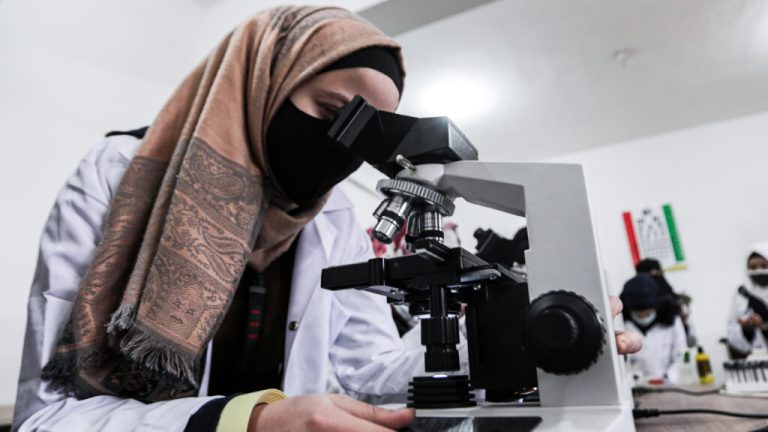When I left Syria in 2014, I had dreams of becoming a trained doctor in the United States. I quickly learned that the American dream is real and that hard work really pays off. I have a master's degree in international health policy and management and completed clinical training in both internal medicine and vascular medicine at reputable institutions. The U.S. health care system valued my commitment over my background or religion and provided me with these opportunities. Today, as I reflect on this journey and the monumental changes in Syria, I am deeply grateful to my mentors and everyone I have had the privilege of working with.
I don't even know if that would happen today.
Immigrant doctors play a powerful role in maintaining and strengthening the health system. If the new White House reimposes visa travel bans on civilians from certain countries, this critical resource will be threatened, putting not only immigrant doctors at risk but also the patients who rely on us for care. There is a possibility that
In 2017, President Trump signed an executive order banning people from seven Muslim-majority countries. It had a significant impact on the U.S. health care system.
According to a 2020 study, international medical graduates (IMGs) make up nearly a quarter of the U.S. physician workforce and are essential to closing gaps in healthcare. Of these, 18.4% (approximately 48,354 physicians) are from Muslim-majority countries, and 38.1% work in primary care specialties. These professionals often provide essential care in rural as well as underserved areas where the need for physicians is greatest. They also contribute significantly to the economy by playing a role in preventing costly health crises. As a nation that has long valued opportunity, the United States must ensure that its policies do not inadvertently crowd out those who would strengthen it.

Immigration fixes to address health workforce crisis
A clear example of the impact of this ban can be seen among Syrian medical graduates. In 2016, Damascus University ranked seventh among universities with the highest number of licensed medical graduates in the United States, with 2,745 physicians. By 2017, Syrian graduates achieved an impressive residency suitability rate of 76.6%. However, after the travel ban, that percentage dropped to 64.4% by 2019.
Since the travel ban and subsequent visa restrictions, the flow of talented Syrian doctors to the United States has slowed significantly, forcing many to seek opportunities in countries such as Germany instead. These young, hard-working physicians have played a historically important role in advancing knowledge in important areas of medicine, such as cardiovascular disease, cancer, and infectious diseases, through postdoctoral research programs in the United States. I'm here. Their work not only saves American lives, but also enables advanced global health and strengthens America's role as a leader in medical innovation. For example, the Society of Syrian American Physicians (SAMS) represents thousands of U.S.-based Syrian doctors and is involved in efforts such as establishing field hospitals in conflict zones and providing life-saving treatment to displaced populations. He is also recognized globally for his expertise in health crisis management. (I am a member of SAMS.)
With the recent fall of the Assad regime, Syrian doctors are uniquely positioned to bridge the gap between global health issues and local reconstruction efforts.
Like many other Syrian doctors here in the United States, I am very much looking forward to putting into practice what I have learned here in the United States and helping the Syrian people. This includes restructuring health systems, creating clinical training programs, and expanding preventive health care. However, if the previous travel ban were re-imposed, many of us Syrian doctors with visas or green cards may not be allowed to re-enter the United States if we leave the U.S. for a short stay. be. This doesn't help anyone. The expertise of Syrian doctors trained and practicing in the United States can play a dual role in strengthening the U.S. health care system while contributing to rebuilding a free and prosperous Syria.
U.S. immigration policy must not only continue to welcome Syrian doctors, but also facilitate a path for them to contribute to Syria's recovery while maintaining their role in U.S. health care.

How Tennessee is creating new opportunities for doctors trained outside the United States
My story is just one among thousands. Immigrant doctors are banding together to support a system that is increasingly struggling to meet the needs of patients across the country. At Massachusetts General Hospital (MGH), he conducted research under Jeremy Raskin, head of the electrophysiology department. Our team consisted of three trainees: an Iranian, an Israeli, and myself, a Syrian. Three people who would never work together anywhere else. This environment created mutual respect, united us, and transformed our diverse perspectives into common values and growth.
As Syrians chart a new future free from authoritarian regimes, the United States has an opportunity to reaffirm its commitment to inclusive immigration policies that strengthen ties between nations. By empowering immigrant physicians, America can continue to lead in medical innovation while supporting stability and peace in the world.
M. Ihsan Kaadan, MD, MS, is an assistant professor of vascular medicine in the division of cardiology and vascular medicine at Rush University Medical Center in Chicago.

